
Key Takeaways:
- University of Michigan- Flint and UNC are two top schools for a radiation science degree.
- Graduates with radiation science degrees find diverse job opportunities in various healthcare settings, including hospitals, outpatient clinics, and physician offices.
- Programs offer foundational knowledge in radiation therapy, imaging modalities, and patient care.
- Degrees typically require a blend of general education, health courses, and specialized radiation science courses, culminating in clinical experiences.
- Many programs are designed to prepare students for certification exams like those offered by the American Registry of Radiologic Technologists.
Healthcare is a field that offers increased opportunities for career advancement, depending on your skills and education. One example is the field of Radiation Sciences, which covers everything from common X-rays, diagnostic scans and images, and treatment modalities.
Depending on your radiation science degrees, certification and licensure, you can find employment in hospitals, outpatient clinics, and physician offices working with patients, physicians, and nurses.
Best Health Degrees has identified schools with radiation science degrees that are accredited and for which financial aid is available with submission of the Free Application for Federal Student Aid (FAFSA) for qualified students.
Our Method: Ranking the 25 Best Radiation Sciences Bachelor’s Programs
To rank the 25 Best Radiation Sciences Bachelor’s Programs, Best Degrees editors researched accredited, trusted programs of all kinds. From our initial pool, we ranked programs according to price, accreditation, reputation, and salary potential, using data from IPEDS and Niche, U.S. News and World Report, and other higher education rating publications.
1. University of Michigan-Flint

If you’re looking for a B.S. in Radiation Therapy, you’ll want to look at the program from the University of Michigan. This Joint Review Committee on Education in Radiologic Technology (JRCERT) accredited program prepares you to sit for the American Registry of Radiologic Technicians (ARRT) certification exam.
Requiring 124 credit hours, your curriculum will include general education and pre-professional courses, in English, Humanities, Social Sciences, Fine Arts, Natural Sciences, and others. You’ll also take basic health courses in anatomy, medical terminology, college physics, etc. The Radiation Therapy coursework involves study in:
- Epidemiology
- Patient Care and Management
- Introduction to Radiation Therapy
- Technical Radiation Oncology
- Clinical Dosimetry
- Radiobiology
- Radiation Physics
You’ll also be required to complete four clinical experiences.
You need to be admitted to the University of Michigan-Flint and complete your general education studies before applying for the Radiation Therapy program. You’ll apply online and pay a $30 nonrefundable application fee, SAT/ACT test scores, and submit academic transcripts. UM-F offers Merit Scholarships along with other scholarship opportunities. You’ll want to submit the Free Application for Federal Student Aid (FAFSA) to be considered for financial assistance.
Estimated Tuition Cost: $61,008-$121,148
Fast Fact: UM-F ranks #154-#209 in U.S. News and World Report’s 2021 Top Public Schools
Learn more about the radiation science degree at the program site!
2. University of North Carolina in Chapel Hill

Here’s a B.S. in Medical Imaging offered through the UNC School of Medicine and accredited by the Joint Review Committee on Education in Radiologic Technology (JRCERT). The radiation science degrees program will prepare you to sit for certification exams. UNC-CH Medical Imaging students have a 100% pass rate of the American Registry of Radiologic Technologists Radiography Certification Examination.
Among the 120 credit hours needed for this degree in radiation therapy, courses in your major will include:
- Introduction to Radiological Science
- Radiography
- Pathophysiology
- Radiologic Health Physics
- Professional Communications & Interactions
- Research in Radiologic Science
- Trends in Medical Imaging Practices & Issues in the Radiology Practice Environment
- Leadership in Radiologic Science
This curriculum is designed to prepare you for an entry-level medical imaging career.
You’ll complete an online common application, submit an $85 nonrefundable fee, academic transcripts, an essay, and answer two short questions. Additionally, submission of ACT/SAT test scores are requested (although, due to Covid-19, a one-year waiver of the SAT or ACT for those applying for Fall 2021 admission.) The school also asks for letters of recommendation from one of your former teachers.
Estimated Tuition Cost: $35,920-$144,636
Fast Fact: Forbes included UNC-Chapel Hill in its Top Public Colleges and ranked it #8
Learn more about the radiation science degree at the program site!
3. University of Missouri at Columbia

This is a Bachelor of Health Sciences (BHS) with an emphasis in Clinical and Diagnostic Sciences. The Joint Review Committee on Education in Radiologic Technology (JRCERT) accredits this program.
Among the 120 credit hours required for the degree in radiation therapy, you’ll take pre-requisite courses in math, English, chemistry, biology, statistics, and others. In the major, you’ll concentrate on radiography topics such as:
- Radiography Procedures
- Imaging Modalities
- Basic Radiographic Skills
- Principles in Radiographic Exposure
- Magnetic Resonance Imaging: Physics and Procedures or Computed Tomography: Physics and Procedures
- Radiation Safety and Biology
Once you finish the program, you’ll be eligible to sit for the American Registry of Radiologic Technologists (ARRT) certification exam.
Estimated Tuition Cost: $53,056-$68-816
Fast Fact: Established in 1839, Mizzou is rated #175/1,619 Best Colleges in America by Niche
Learn more about the radiation science degree at the program site!
4. University of Mississippi

You can earn a B.S. in Radiologic Sciences from Ole Miss in 120 credit hours which holds Joint Review Committee on Education in Radiologic Therapy accreditation.
This is a 2 + 2 program, meaning you’ll complete two years of coursework in Allied Health Studies at the UM-Oxford campus and then make an application to the University of Mississippi Medical Center in Jackson. The curriculum for the degree in radiation therapy will include general education courses as well as studies in allied health. Once admitted to the UM Medical Center 64 credit hour program, you’ll study topics in:
- Radiographic Procedures
- Radiation Protection
- Radiobiology
- Image Formation
- Advanced Medical Imaging Science
- Legal and Ethical Issues in Imaging Sciences
You’ll also participate in clinical experiences.
Admission requires an application, high school GPA, transcripts, senior course schedule, and other documents.
Estimated Tuition Cost: $42,924
Fast Fact: Ole Miss Oxford ranks #77 in Top Public Schools by U.S. News and World Report
Learn more about the radiation science degree at the program site!
5. Baker College

This is a B.S. in Radiation Therapy and is a limited enrollment program. The Joint Review Committee on Education in Radiologic Technology (JRCERT) accredits Baker’s program.
The degree takes 120 credit hours to complete and requires general education credits in addition to studies in the Radiation Therapy major. You’ll study anatomy, physics, pathophysiology, psychology, algebra, etc. Additionally, you’ll take classes in:
- Patient Care Management
- Radiation Therapy Physics
- Dosimetry, Quality Management
- Operational Issues in Radiation Therapy
As with other RT programs, you’ll be expected to complete three clinical experiences where you’ll observe simulations, patient care, as well as block marking, and treatments.
This is a competitive program. Admission documents include an application with a $30 nonrefundable fee, submit official academic transcripts, and ACT/SAT test scores are optional.
Estimated Tuition Cost: $49,800
Fast Fact: Located in Flint, MI, Baker College is rated #119-#156 in U.S. News and World Report’s Regional Universities Midwest
Learn more about the radiation science degree at the program site!
6. University of Saint Francis

Accredited by the Joint Review Committee on Education in Radiologic Technology (JRCERT), USF has an undergraduate degree in Radiation Therapy that is a 2 + 2 B.S. program.
You’ll study:
- Radiologic Physics
- Radiographic Procedures
- Oncology
- Radiation Therapy Physics
- Simulator Procedures
- Introduction to Health Services Administration
- Quality Management
- Radiation Therapy Registry Review
- Sectional Anatomy
- Radiobiology/Radiation Protection
Clinical education is a critical part of this program and you’ll do your practicum experiences in one of the numerous clinical sites, such as Riverside Cancer Institute, North Shore Health System, Advocate Christ Medical Center, University of Chicago, and others. You’ll earn experience with linear accelerators, simulators, physics and dosimetry, and patient care.
ACT/SAT test scores are not required as part of admission information, but you will need to provide high school transcripts and have at least a 2.5 GPA, and complete an application (no fee required).
Estimated Tuition Cost: $136,000
Fast Fact: One of Niche’s Best Value Colleges in America
Learn more about the radiation science degree at the program site!
7. Wayne State University
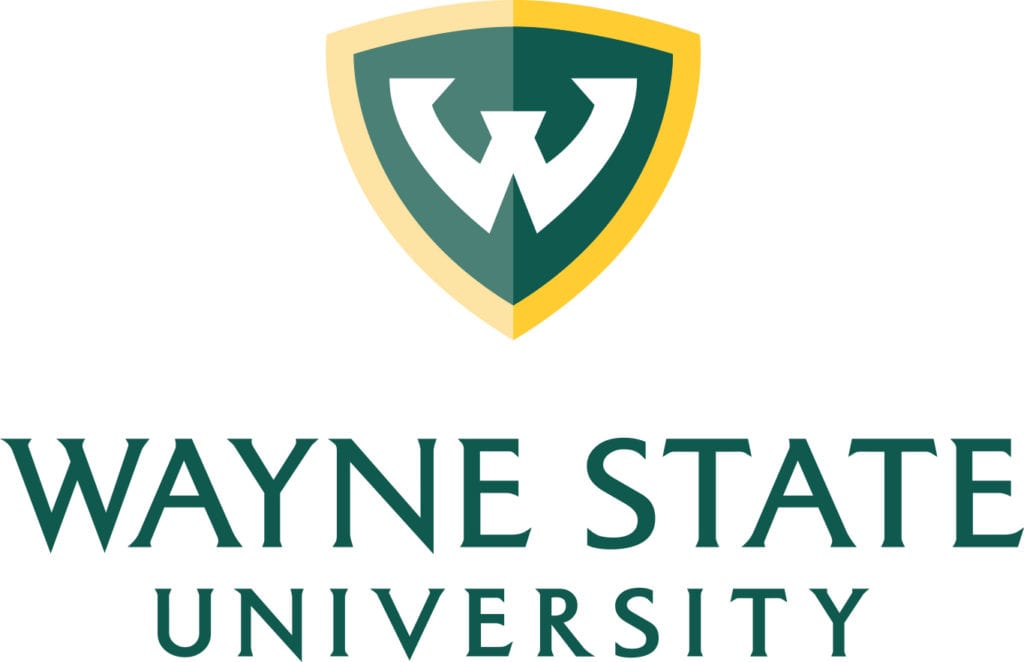
Located in Detroit, Michigan, Wayne State University, in partnership with Henry Ford Hospital, offers a B.S. in Radiologic Technology.
This undergraduate program requires general education coursework in Global Learning, Civic Literacy, Diversity, Equity, and Inclusion, and Social Inquiry. Other prerequisites are required in science subjects such as anatomy and human physiology. Classes in the major include studies in:
- Radiographic Procedures
- Patient Care
- Radiation Physics and Circuitry
- Radiographic Pathology
- Pharmacology
You’ll also participate in clinical education where you’ll work with an experienced Radiology Technician treating patients in a clinical setting.
As part of the admission process to this program, you’ll need to complete a minimum of 60 credit hours in general education and prerequisite courses with at least a 2.8 GPA. As with other schools, Wayne State University has waived the ACT/SAT test scores in its admission requirements. You will need to submit an application, provide an academic reference, academic transcripts, etc.
Estimated Tuition Cost: $47,640-$109-080
Fast Fact: U.S. News and World Report rates WSU #121 in its Top Public Schools ranking
Learn more about the radiation science degree at the program site!
8. Saint Louis University
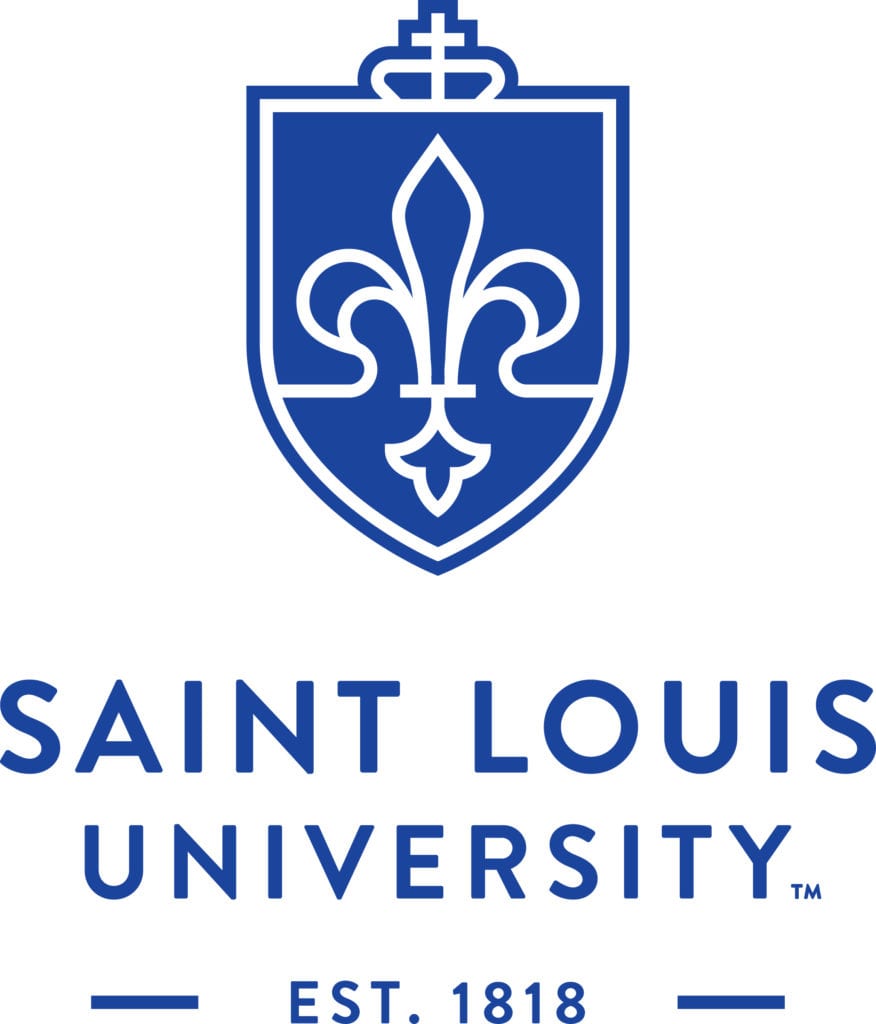
This Missouri university has a B.S. in Radiation Therapy degree that requires 127 credit hours. The program also offers a traditional track as well as three others in pre-med, pre-Physician Assistant, or those who have an associate degree.
General education courses in math, English, general physics, fine arts, etc. are required. Among the topics covered in the major are:
- Radiation Physics
- Treatment Planning
- Treatment Techniques
- Clinical Dosimetry
- Radiobiology and Radiation Protection
- Radiation Oncology Patient Care
- Quality Management
- a Capstone Project in Radiology
The curriculum also has three clinical practice experiences working with experienced clinical technicians.
You need a minimum 2.7 GPA for admission and SLU has waived the ACT/SAT test score requirement.
Estimated Tuition Cost: $44,700
Fast Fact: Princeton Review includes SLU in its 2021 Best Value Colleges list
Learn more about the radiation science degree at the program site!
9. Oakland University
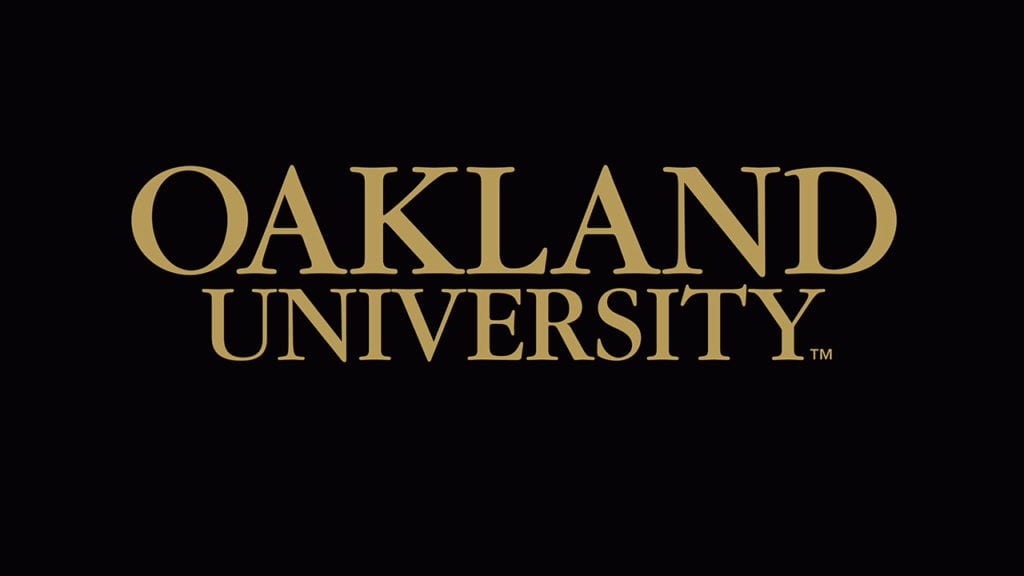
Oakland University is located in Rochester, Michigan and provides a B.S. in Radiologic Technology through its Department of Clinical and Diagnostic Services.
You’ll be asked to complete studies in core courses in human anatomy and physiology, medical terminology, health care ethics, general chemistry, and more. The RT major curriculum includes, besides general education classes, studies in:
- physiology
- physics
- radiographic procedures
- exposure
- medical imaging
Additionally, you’ll take courses in patient care methods, radiation biology and protection, as well as six clinical experiences.
Oakland University admission has no application fee and ACT/SAT scores are not required for 2021 incoming students but you do need a high school GPA 3.2 or above and submission of academic transcripts.
Estimated Tuition Cost: $53,384-$98,840
Fast Fact: U.S. News and World Report includes Oakland University #154-#209 in its Top Public Schools ranking
Learn more about the radiation science degree at the program site!
10. Midwestern State University-Texas

Midwestern State University calls Wichita Falls, Texas, home. Through its Shimadzu School of Radiologic Sciences it offers a 120 credit hour B.S. in Radiologic Science.
As others in this ranking, this program is accredited by the Joint Review Committee on Education in Radiologic Technology (JRCERT). According to the school’s Student Handbook, the professional curriculum includes coursework in:
- radiologic procedures
- patient care
- imaging pathology
- ethics and legal issues
- quality improvement
- CT physics
- clinical experiences
MSUTexas has a long list of clinical affiliates from which to choose your practicum work. You’ll also be required to take general education classes as part of this degree.
Admission to the university for 2020-21 doesn’t require ACT/SAT test scores and offers test-optional pathway or a pathway for those who have taken the test. There’s a $40 application fee.
Estimated Tuition Cost: $38,404-$80,857
Fast Fact: Ranked #746/1,572 Best Value Colleges in America by Niche
Learn more about the radiation science degree at the program site!
11. Indiana University Northwest

Gary, Indiana is home to this university and its B.S. in Radiologic Sciences with a Radiation Therapy concentration.
Accredited by the Joint Review Committee on Education in Radiologic Technology (JRCERT), this curriculum is comprised of 52 credit hours in general education courses, including human anatomy, humanities, English, communication, and others. Once you begin your professional coursework, you’ll study:
- Radiation Biology and Protection
- Radiation Oncology Techniques
- patient care
- Clinical Dosimetry
You’ll participate in five clinical experiences.
You need to be admitted by the university (submitting an application, academic transcripts, etc.) and complete the general education curriculum prior to applying for the professional program. The RT program requires you be eligible to register with the ARRT, maintain a 2.5 GPA, and have a personal interview with faculty.
Estimated Tuition Cost: $30,108-$79,912
Fast Fact: Niche reports INU is #363/1,596 in the Colleges with the Best Professors in America
Learn more about the radiation science degree at the program site!
12. Northwestern State University of Louisiana
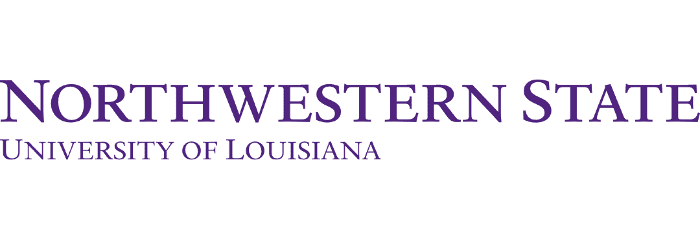
The School of Allied Health at this university in Natchitoches, LA provides a B.S. in Radiologic Sciences (BSRS). If you’re currently working as a Radiologic Technologist (RT) and want to advance your career with a B.S. degree, you should look into the RT to BSRS option.
As with most undergraduate degrees, you’ll need to complete 120 credit hours of study in general education and in the BSRS major. The curriculum for the BSRS concentration includes studies in:
- radiation protection
- radiographic principles
- research
- imaging principles
- sectional anatomy, special imaging, quality management, along with clinical experiences.
Clinical courses will be held on the Alexandria or Shreveport campuses.
General admission requirements to the university require an application, academic transcripts, and ACT/SAT scores. The department requires specific program admission procedures which includes, among other documents, completion of general education requirements, minimum 2.7 GPA, as well as an entrance exam to Radiology.
Estimated Tuition Cost: $61,376-$78,224
Fast Fact: U.S. News and World Report rates NSUL #42 in its Top Public Schools ranking
Learn more about the radiation science degree at the program site!
13. Augusta University

This Georgia university provides an accredited, four-year B.S. in Radiation Therapy degree. If you have an associate degree with at least 60 general education credit hours, you can earn your degree in two years with this program.
As is typical in BSRT programs, you’ll study:
- Sectional Anatomy
- Radiation Protection and Biology
- Patient Care
- Cancer Management in Radiology Oncology
- Professional Issues and Ethics
- Radiation Oncology Procedures
- Physics of Radiation Oncology
- Radiation Oncology Dosimetry
You’ll also work in a clinical setting with a professional RT and the planning, patient care, and radiation therapy treatment.
You’ll make a general university application ($55 fee), submit official academic transcripts, letters of recommendation, and demonstrate a 2.5 GPA for admission.
Estimated Tuition Cost: $35,328-$169,470
Fast Fact: Augusta University is ranked in U.S. News and World Report’s Top Public Schools rating
Learn more about the radiation science degree at the program site!
14. Thomas Jefferson University

This Philadelphia university has an impressive 100% certification exam pass rate for its B.S. in Radiation Therapy (BSRT) graduates.
You can choose from two concentrations in Radiation Therapy or Medical Disometry. The Department of Medical Imaging and Radiation Sciences BSRT curriculum offers:
- Cross-Sectional Anatomy
- Radiation Protection
- Radiation Therapy Principles & Procedures
- Patient Care in Radiation Oncology
- Radiation Therapy Physics
You’ll also be able to train on the Virtual Environment Radiotherapy Training (VERT). This is a life-sized linear accelerator virtual replica, with 3-D visualizations, that is intended to help you understand complex radiation therapy concepts.
Admission to this program requires a $50 application fee, application, and support materials such as a personal essay, academic transcript, and letter of recommendation. Jefferson University no longer requires the ACT/SAT test scores for admission consideration.
Estimated Tuition Cost: $83,430-$166,860
Fast Fact: This school is ranked by Niche as #306/1,572 in its Best Value Colleges in America
Learn more about the radiation science degree at the program site!
15. University of Southern Indiana

Here’s another Indiana school that offers a bachelor’s degree in Radiologic and Imaging Sciences. The program offers both four-year radiation science degrees and degree completion tracks.
Holding JRCERT accreditation, the curriculum requires core courses in:
- medical terminology
- patient care
- radiologic technology
- radiographic exposure
- radiologic physics
- biology
- pathology
- professional development
- supervised clinical experience in patient care, developing clinical skills, and practice imaging procedures
You can expect to complete general education courses in humanities, social, behavioral, and physical sciences, fine arts, communications, math, etc.
You’ll make an application to the university first, complete core coursework, and then make an application to the RT program. Among the program requirements are a 3.0 GPA in prerequisite classes, program application, and provide academic transcripts. You’ll also be asked to provide a personal narrative on your goals and ambitions with this program.
Estimated Tuition Cost: $34,184-$79,424
Fast Fact: SIU is one of U.S. News and World Report’s Top Public Schools
Learn more about the radiation science degree at the program site!
16. Siena Heights University

Siena Heights University in Michigan awards a Bachelor of Applied Science (BAS) in Radiologic Technology. This is a degree completion program designed for those radiologic technology professionals who have an Associate of Applied Science Radiologic Technology, radiation science degrees, or have hospital-based training, AART registry, and at least two years of work experience.
This online degree offers coursework in such upper-division areas as business, healthcare management, liberal arts (history, English, math, social and behavioral sciences, etc.), etc. If you’re in the area, you can also complete this program at the university’s Adrian and Southfield campuses. You can, if you choose, a minor in Healthcare Management or Management (a minor is not required). The university can award up to 24 credit hours for ARRT specialty areas such as CT, MRI, Sonography, or Nuclear Medicine.
Admission for this degree is straightforward and you may transfer anywhere from 60-90 credit hours from your AAS degree program. You’re encouraged to contact an admission counselor to discuss your options.
Estimated Tuition Cost: $27,152/per academic year
Fast Fact: Siena Heights University ranks in #939/1,572 Best Value Colleges in America by Niche
Learn more about the radiation science degree at the program site!
17. Bellarmine University

Bellarmine University is an independent Catholic school located in Louisville, KY. Through its College of Health Professions, you can earn a Bachelor of Health Science with a Radiation Therapy concentration.
You’ll complete 120 credit hours of study for one of the best radiation science degrees, involving general education classes, and radiation therapy courses. Among those courses are:
- Introduction to Radiation Therapy
- Radiation Biology
- Oncology Patient Care
- Radiation Therapy Physics
- Principles and Practices of Radiation Therapy
You’ll also enroll in a clinical experience. You’ll need to maintain a 2.75 cumulative GPA in your major courses. Bellarmine University employs Virtual Environment Radiotherapy Trainer (VERT) to allow you to apply what you’ve learned with virtual clinical practice.
Admission requires completion of an application, letter of recommendation, academic transcript, and the ACT/SAT test scores (or request Test-Optional).
Estimated Tuition Cost: $43,070 (per academic year)
Fast Fact: Forbes ranks Bellarmine in its Top Colleges in 2019
Learn more about the radiation science degree at the program site!
18. Weber State University
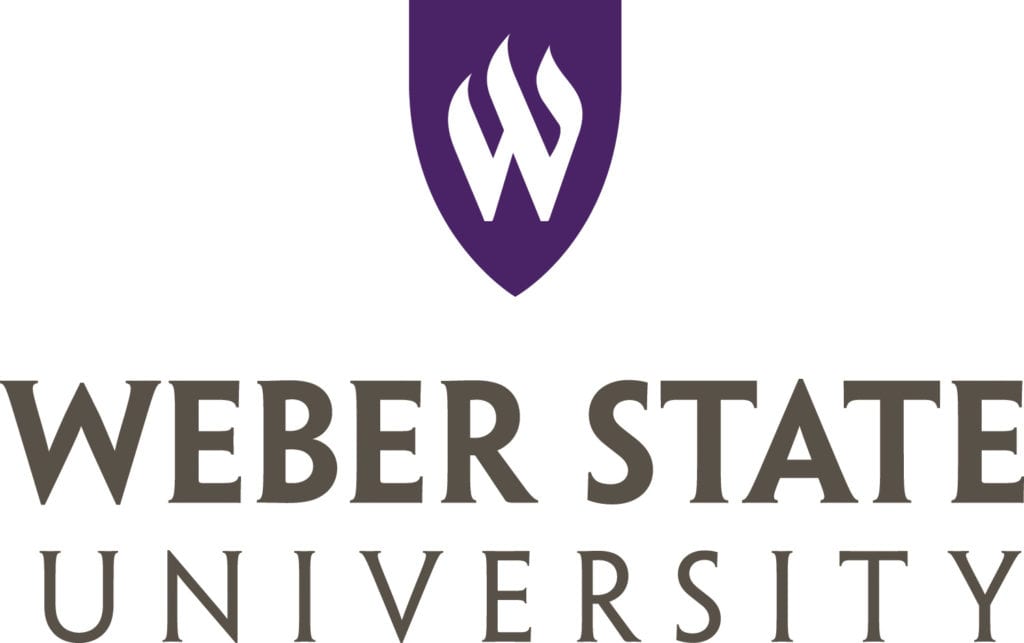
If you’re looking for radiation science degrees completion programs in radiation therapy, you should check out Weber State University’s B.S. degree which requires 120 total credit hours in general education and radiation therapy coursework.
The degree completion requires 46 credit hours study in:
- Radiation Oncology
- Managing Clinical Information
- Advanced Treatment Planning/Brachytherapy
- New Technology, a Baccalaureate Thesis
- Clinical Education
To qualify for this program, you need to be certified by the American Registry of Radiologic Technologists (ARRT) and have completed general education courses through an Associate degree. You can also take general education classes online through Weber State University if needed. The program will award experiential credit for those who earned the ARRT credential through a hospital-based program.
To be considered for this program, you’ll need to submit an online application ($30 nonrefundable fee) and official academic transcripts from any school attended. ACT/SAT test scores are not required.
Estimated Tuition Cost: $6,106-$16,288 (per academic year)
Fast Fact: WSU is one of Niche’s Best Value Colleges in America
Learn more about the radiation science degree at the program site!
19. Austin Peay State University

This Tennessee university offers a B.S. in Radiologic Science (BSRC) program.
You’ll be asked to complete prerequisite coursework in core, general education classes (i.e., humanities, math, English, communication, etc.) before beginning the RT topics. This degree requires classes in:
- Patient Care and Interaction
- Introduction to Clinical Radiation Oncology
- Simulation and Treatment Techniques
- Radiographic Procedures
- Radiation Therapy Treatment Planning and Dosimetry
Clinical Experience is included in the curriculum in clinical affiliates in the Clarksville-Nashville area.
The first step for this program is to apply to Austin Peay State University for admission by filing an application and $25 fee, submission of ACT/SAT scores, as well as academic transcripts. Admission to the RT program requires at least a 2.5 GPA, an application, physical, essay, as well as a short entrance evaluation.
Estimated Tuition Cost: $33,600-$61,320 (Program total)
Fast Fact: Ranked #25 in Top Public Schools by U.S. News and World Report
Learn more about the radiation science degree at the program site!
20. University of Sioux Falls

Here’s a Radiologic Technology undergraduate degree completion program from this South Dakota Christian university.
Requirements for this degree include a minimum of 68 credit hours of university study, finish a JRCET accredited radiologic technology, and pass the American Registry of Radiologic Technologists (ARRT) Certification Examination. You’ll be expected to complete core courses in:
- Human Anatomy
- General Chemistry
- Human Physiology
- math
- Biomedical Research or Science Colloquium
Note: USF does not have a partnership with a hospital-based radiology technology program and can’t guarantee admission to a JRCET-accredited program.
You must have an Associate degree or 48 transferable credits, three years of work or volunteer experience, a 2.0 GPA, as well as a completed admission application.
Estimated Tuition Cost: $19,520
Fast Fact: Founded in 1872 before SD was admitted to the union
Learn more about the radiation science degree at the program site!
21. Roosevelt University
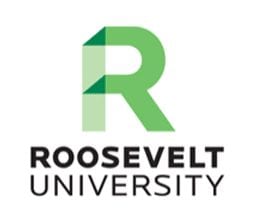
This B.S. in Radiation Therapy Technology from Roosevelt University in Illinois. Graduates from this program have a 100% certification exam pass rate.
You’ll take 85 credit hours of general education coursework as well as 35 credit hours in radiology topics. The RT program offers classes in:
- Patient Care Management
- Radiation Physics
- Medical Imaging for Radiation Therapy
- Principles and Practice, Technical Radiation Therapy
- Quality Management
- Introduction to Computed Tomography
- Radiation Biology
If accepted into the clinical program, you’ll participate in a clinical practicum in the Chicago area. Other requirements include studies in anatomy and physiology, chemistry, biology, as well as statistics, algebra, and physics.
Admission to the RT degree requires general admission to Roosevelt University which involves an application, self-reported GPA and SAT/ACT test scores (testing is optional for many majors Fall 2021). You may also be asked for an essay, letter of recommendation, and/or academic transcripts. Clinical training admission is at the discretion of Northwestern Memorial Hospital, the Roosevelt University clinical affiliate.
Estimated Tuition Cost: $31,493/per academic year
Fast Fact: Niche names Roosevelt University #709/1,619 Best Colleges in America
Learn more about the radiation science degree at the program site!
22. Concordia University

Ann Arbor, MI is home to this Christian-based, Concordia University and its B.S. in Radiologic Technology.
Requiring 126 credit hours, this is a 2+2 program, with two years of prerequisites and two years of RT coursework and clinical experience through a CUAA’s partner schools, Ascension St. John Hospital School of Radiologic Technology Ascension Providence Hospital School of Radiologic Technology (both hold Joint Review Commission on Education in Radiologic Technology (JRCERT) accreditation). Through those schools, you’ll study:
- anatomy
- radiation safety
- patient care
- physiology
- physics
- disease processes
Prerequisites at Concordia University includes liberal arts studies and core courses in the Bible, Old and New Testaments, Christian Citizen, etc.
You’ll make application for admission through Concordia and will be asked for an application, ACT/SAT test scores, and official academic transcripts. As you enter the last stages of the pre-professional curriculum, you’ll make application to one of the affiliate partners.
Estimated Tuition Cost: $30,890/per academic year
Fast Fact: Niche cites Concordia University Ann Arbor #686/1,577 in its Colleges with the Best Academics in America category
Learn more about the radiation science degree at the program site!
23. Suffolk University

This Boston university, through its College of Arts and Sciences, offers accredited degrees in Radiation Sciences and Radiation Therapy.
The Radiation Sciences degree concentrates on laboratory and research, while the Radiation Therapy major combines classroom studies with clinical experiences. Both degrees require 126 credit hours (including general education studies) and share many of the same core classes. Anatomy, physiology, radiation physics, cancer care, dosimetry, math, biostatistics are among the major courses required. The Radiation Therapy program provides clinical experiences in some of Boston’s finest healthcare facilities such as:
- the Dana-Farber Cancer Institute
- Massachusetts General Hospital
- Beth Israel Deaconess Medical Center
You’ll make a general application to Suffolk University for admission prior to applying for one of the radiation programs. A common application, letter of recommendation, official academic transcripts, as well as self reported ACT/SAT scores. Additional information may be requested.
Estimated Tuition Cost: $41,242/per academic year
Fast Fact: Suffolk University ranks in the top 100 of U.S. News and World Report’s Best Value Schools
Learn more about the radiation science degree at the program site!
24. University of Hartford

Located in Harford, CT, you can earn a B.S. in Radiologic Technology from the University of Hartford.
Offered through UH’s College of Education, Nursing and Health Professions, this program is 125 credit hours in length, requiring studies in general education, sciences, and professional courses. You’ll take 50 hours in your professional studies and will include courses in:
- Diagnostic Imaging
- Patient Care
- Image Production
- Radiographic Positioning
- six clinical experiences (one each semester, beginning in your sophomore year)
Additionally, the program calls for a concentration in either Computed Tomography, Ultrasound, or Magnetic Resonance Imaging. On graduation, you’ll be eligible to sit for the American Registry of Radiologic Technologists (ARRT) credentialing exam.
Hartford University has a rolling admission policy. The process requires an application, official academic transcripts, ACT/SAT test optional, and letter of recommendation. You’ll also need to meet admission requirements of the College of Education, Nursing and Health Professions and demonstrate a 2.5 GPA for approximately 20 credit hours of study.
Estimated Tuition Cost: $43,560/per academic year
Fast Fact: Hartford University is one of Niche’s Best Value Colleges in America (#599/1,401)
Learn more about the radiation science degree at the program site!
25. Thomas Edison State University
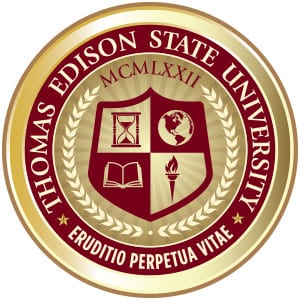
This B.S. in Radiation Therapy from New Jersey’s Thomas Edison State University requires 120 credit hours for completion. The program is designed only for licensed, registered radiation therapy technicians.
You’ll take general education classes covering topics in:
- Civic and Global Learning
- Understanding the Physical and Natural World
- Knowledge of Human Cultures
- Intellectual and Practical Skills
- Mathematics
Included in your radiation science major studies will be classes in:
- Oncogenic Pathology
- Radiation Oncology
- Radiation and Nuclear Physics
- Quality Management
- Current Trends
- Applications
You’ll also participate in labs and clinical practices.
You may want to explore the admissions criteria to determine the best avenue for you, depending on your educational status. Of special interest to currently working RTs may be the school’s Prior Learning Assessment option in which you may be awarded academic credit for training programs, past work experiences, volunteer work, military training, and so on. The school also accepts, where appropriate, CLEP®, DSST®, and Excelsior exam credits. Speak with an admissions counselor to see if the Prior Learning Assessment may apply to you as you pursue your degree in radiation therapy.
Estimated Tuition Cost: $3,579-$4,639/per academic year
Fast Fact: Thomas Edison State University is one of the nation’s oldest schools developed especially for adult learners
Learn more about the radiation science degree at the program site!
Why Get a Degree in Radiation Science or Therapy?
As with most allied healthcare professions, the higher your degree, the more workplace options, higher salary, and professional opportunities will be available to you. You can work in radiologic sciences with an Associate of Applied Science degree, but if you want to advance in your career, you’ll want to obtain an undergraduate degree from an accredited university.
Radiologic Sciences covers a variety of specialities ranging from medical imaging techniques (such as X-rays or ultrasound) to radiation therapeutics (oncology, Computer Tomography, Magnetic Resonance Imaging, etc.). The Bureau of Labor Statistics (BLS) estimates this field is growing at a 7% rate between 2019-2029.
Imaging professionals must be licensed and certified in a majority of states. A benefit of a RT degree is that you’ll be prepared to sit for certification exams offered by the American Registry of Radiologic Technologists (ARRT). You must be certified to be approved for licensure.
Is Radiation Therapy a Good Career Choice?
One specialty career in radiologic sciences, is Radiation Therapy, or the use of radiation in the treatment of disease. A Radiation Therapist can look forward to a satisfying career working alongside physicians to provide treatments. This particular radiologic science concentration, primarily working with oncology patients, is expected to grow by a fast 7% over ten years and offers a solid, average salary of $85,560 per year (BLS). Employment can be found in hospitals, out patient clinics, or physician offices.
But, let’s also look at other radiologic sciences careers. A Bachelor of Science degree in radiation therapy will give you a strong background in this fast growing profession. Among the diagnostic specialties in radiologic sciences are MRI/CT technologists, Medical Sonographers, and Radiologic Technologists. U.S. News and World Report ranks Radiologic Technology as #15 in the nation for Best Healthcare Support Jobs and #75 in 100 Best Jobs, nationwide.
Radiation Science Careers – Salary Outlook
Depending on your educational level, certification, and specialty, salaries can range from $61,540-$86,730 per year, according to U.S. News and World Report. While you can enter the field with an Associate of Applied Science degree, you may want to consider advancing your education with a two-year, degree completion program that leads to a Bachelor of Science (degree in radiation therapy).
Related Rankings: